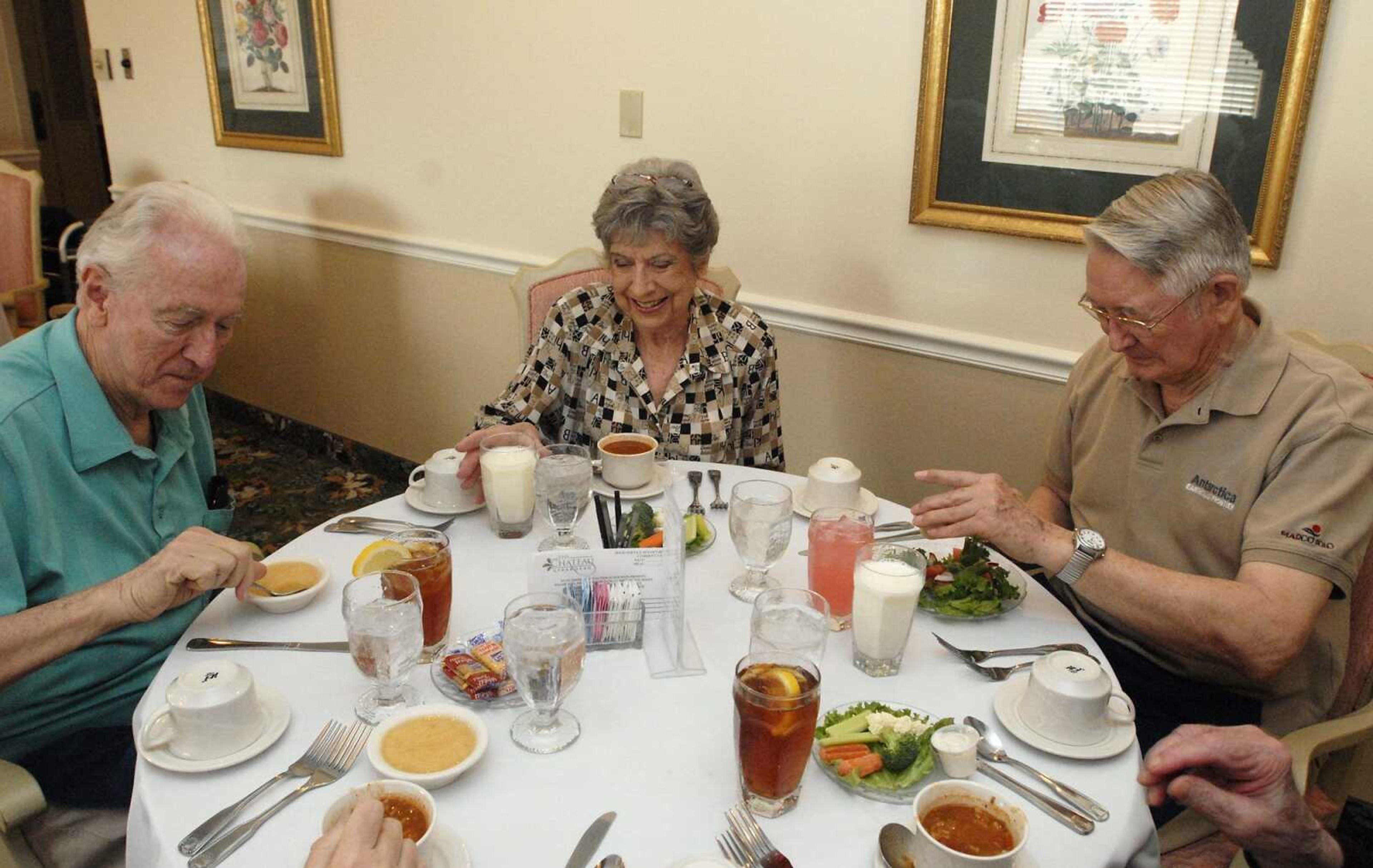Tea and toast: Malnutrition is a growing problem among older adults
While 34 percent of American adults are battling obesity and its ensuing diseases, many seniors are facing another food-related problem: malnutrition. The American Journal of Nursing reported in 2005 that an estimated 20 to 60 percent of elderly home-care patients are malnourished or will be soon; the estimate rises to 85 percent in nursing homes. ...
While 34 percent of American adults are battling obesity and its ensuing diseases, many seniors are facing another food-related problem: malnutrition. The American Journal of Nursing reported in 2005 that an estimated 20 to 60 percent of elderly home-care patients are malnourished or will be soon; the estimate rises to 85 percent in nursing homes. Staff at local nursing and retirement communities agree that nutrition can be a problem for seniors, and they work hard to make sure all residents eat well-balanced meals.
"Upon food history review, some will reveal that they only consume one, at times two, good meals per day, with the remainder of the day consisting of much smaller meals or snacks, such as cookies, candy, cereal or half a sandwich," says Staci Wendel, a registered licensed dietitian at The Lutheran Home in Cape Girardeau. She and fellow dietitian Christi Shafer have seen other nutrition issues, such as splitting home-delivered meals into two meals. Some family members and caregivers voice concerns about the safety of foods in a relative's home.
Over time, poor eating habits can lead to malnutrition and other health problems, especially for those who are already in poor health. Local sources say the reasons for this nutritional landslide, dubbed "tea and toast syndrome" by the American Journal of Nursing, are many.
Depression is a major factor affecting seniors' eating habits, especially if they've lost a spouse, says Rhonda Bramlett, nutritionist at the Southeast Missouri Area Agency on Aging. It's no fun to eat alone, she says, especially if you're low on energy or don't have an appetite.
"That's kind of a bummer," says Bramlett. "And there could be a gentleman who perhaps hasn't cooked for himself at all."
Aging, health problems and certain medications can affect appetite and how foods taste, and tooth or denture problems make eating uncomfortable. Retired, cash-strapped seniors might end up sacrificing their nutritional needs in order to pay the bills.
Malnutrition can cause more long-lasting problems, however.
"If you're not eating, you're not drinking either, usually, so dehydration is a big issue," says Bramlett. Dehydration, coupled with malnutrition, can lead to confusion and difficulty thinking or reasoning. It may eventually worsen other existing health problems.
"Not eating well leads to involuntary weight loss, which may cause physical weakness and loss of strength, which can increase an elderly person's risk of falls and bone fractures," says Kari Wilhelm, registered licensed dietitian at Chateau Girardeau. "Weight loss and protein malnutrition also increase an elderly person's risk for sickness, infection and slower recovery time from sickness or surgery."
Independent living residents at Chateau Girardeau and at Saxony Village receive one meal per day as part of their fees, but may buy more if they choose. Those in skilled and assisted living at Chateau Girardeau and the Lutheran Home receive three meals a day, plus snacks. Dietitians are on hand to make sure the residents are getting enough to eat, and to help them if needed.
At the Agency on Aging, Bramlett encourages all of her clients to eat affordable, healthy meals at one of the 33 senior centers in Southeast Missouri.
"The center is a good place to get a balanced meal and to have the companionship of other people as well. Socialization is what it's all about," she says.
The centers also offer regular education programs, many of which focus on healthy eating.
"If seniors are struggling with paying for their medications or paying off their medical bills, they can come to the center, and it is a confidential contribution. We think there are a lot of people that understand the value of the program and put in more than the suggested amount," says Bramlett. "We want to provide a basic, nutritious meal one time a day for them in hopes that their health will at least stay the same or improve. That's a goal of ours."
Connect with the Southeast Missourian Newsroom:
For corrections to this story or other insights for the editor, click here. To submit a letter to the editor, click here. To learn about the Southeast Missourian’s AI Policy, click here.









